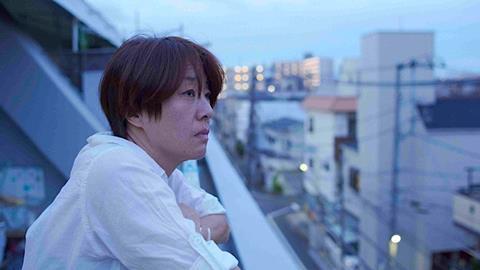Sensitive exploration of why – and how – thousands of Japanese people vanish each year without a trace

Dir: Andreas Hartmann, Arata Mori. Germany/Japan. 2024. 85mins
Thousands of people go missing in Japan each year, deciding to quit their current lives and start all over again under a fresh identity. It is such an established occurence that is often facilitated by so-called ‘night moving’ companies, who are paid to assist with what is frequently a moonlight flit. The vanished are known as johatsu – which means ’the evaporated’ – and German director Andreas Hartmann and Japanese filmmaker Arata Mori’s documentary dives into the phenomenon in all its psychological and emotional complexity.
The effect is immersive
The directors avoid an academic approach in favour of the observational, getting down to street level with people who have jettisoned their lives, a facilitator and some of those who have been left behind. The effect is immersive, and the film also benefits from a keen eye for visuals that elevates the mood above mere fly-on-the-wall. After its world premiere in Thessaloniki’s International Competition and subsequent showings at CPH:DOX, it will screen in German cinemas this autumn and be broadcast by Arte at a later date. Its creative and sensitive handling of a fascinating topic could easily catch the eye of further festivals and arthouse distributors.
The subjects of Johatsu have vanished for a number of reasons. We see one man leave his abusive spouse, while an anonymous young couple has escaped a violent and blackmailing boss. Kanda fled his life more than three decades ago as a result of Yakuza threats, while Sugimoto told his wife and young family he was going away on a three-day work trip and never came back because he couldn’t cope with the shame of a failed business.
Threading through some of their stories is ’night mover’ Saita, whose no-nonsense attitude gives the film some kick. Hartmann and Mori do not overlook those who are left behind, like Goto, a mother who, having hit data protection roadblocks when attempting to find out what has happened to her missing son Kazuki, has hired someone to try to locate him.
Unusually for a film documenting Japan, known for its hustle and bustle, there is a deliberate feel of loneliness and isolation in many of the establishing shots. Deserted streets, railway crossings with lights flashing but no trains and an empty beach are all captured in long, locked-off takes by Hartmann, who also takes on cinematography duties. Additional tension is supplied by a drum element in the score by Japanese percussionist Mika Takehara, working in collaboration with German composer and sound designer Jana Imert.
The sense of longing extends to many of the participants, including the johatsu themselves. The young couple, who have live-in jobs arranged at an anonymous love hotel by Saita, dream of leading a regular existence. The young man notes that life with their abusive employer was ”underground”, but that even now “it’s still pretty dark”. Other participants, meanwhile, find themselves making tentative reconnections with their family.
Meticulous editing from Kai Eiermann helps the patchwork of all these lives to come together in a way that indicates patterns in the johatsu phenomenon. Several of those involved, for example, have previously experienced someone vanishing. There is also an indication that, while shame may have driven people to feel this was their only choice, many of their families have only forgiveness in mind. Even Saita’s story becomes increasingly complex as we learn more about her.
The verite style of shooting means that one or two details are inevitably skimmed over. Saita, for example, is not questioned as to why she is helping a woman who believes she is being stalked, even though it’s evident that her client is having a mental health crisis. And quite how the young couple got into a blackmail situation in the first place is also never fully outlined.
In other ways, however, the directors make the flexibility work for them. They can allow some interactions to play out in audio over shots of the environment, as they have already established a rhythm. The trust of their subjects is also evident and extends to the fact the filmmakers have said they won’t screen the film in Japan in order to protect the participants’ identities. “Ask me anything you like,” says Saita. That they do not see this as an opening for interrogation speaks volumes for their quietly observational approach, which is all the more engaging for its organic revelations.
Production companies: Ossa Film, Mori Film
International sales: Cat & Docs info@catndocs.com
Producers: Andreas Hartmann
Cinematography: Andreas Hartmann
Editing: Kai Eiermann
Music: Jana Irmert, Mika Takehara







![The Brightest SunScreen[Courtesy HKIFF]](https://d1nslcd7m2225b.cloudfront.net/Pictures/274x183/3/5/0/1448350_thebrightestsunscreencourtesyhkiff_312678.jpg)















![The Brightest SunScreen[Courtesy HKIFF]](https://d1nslcd7m2225b.cloudfront.net/Pictures/100x67/3/5/0/1448350_thebrightestsunscreencourtesyhkiff_312678.jpg)
